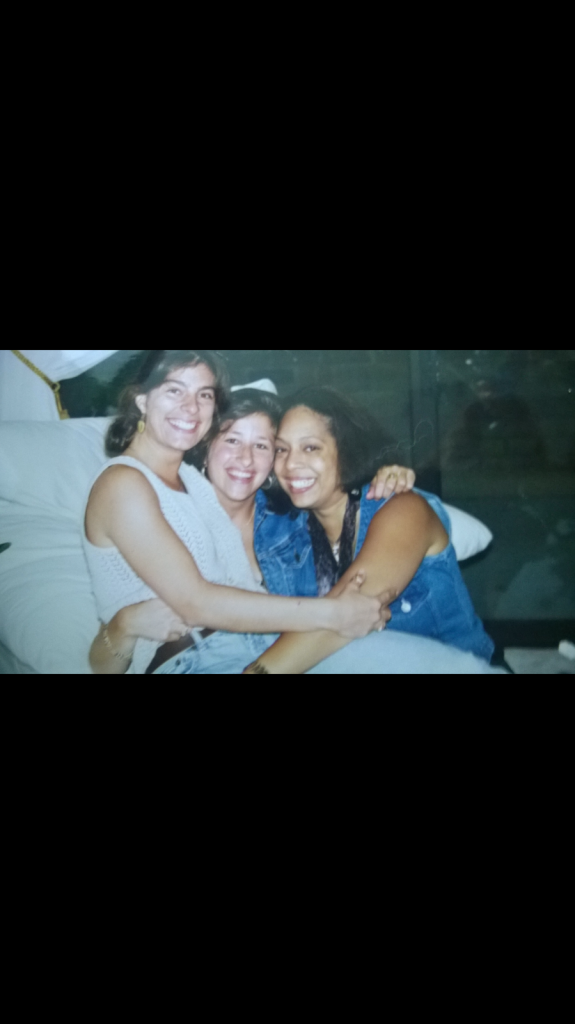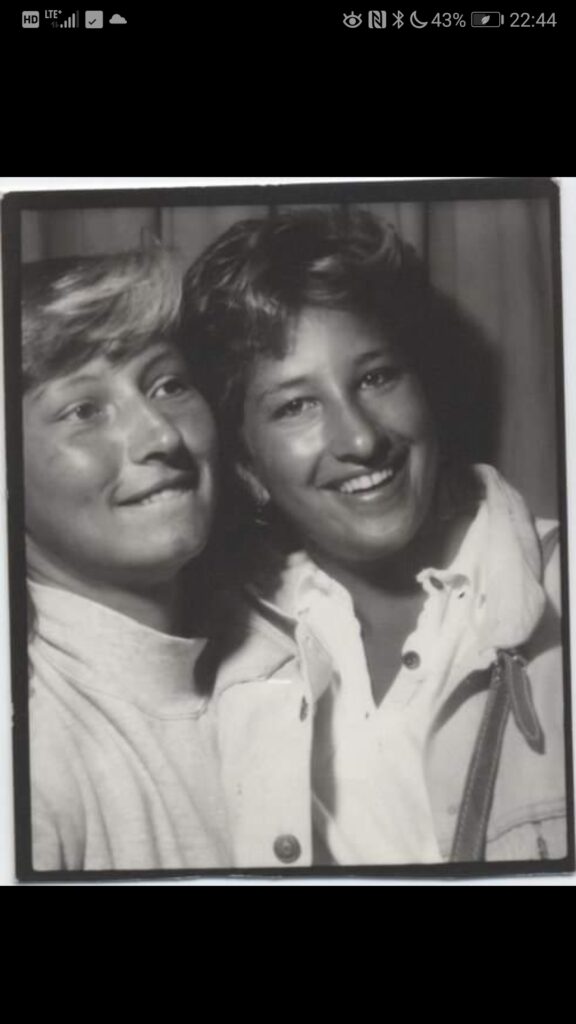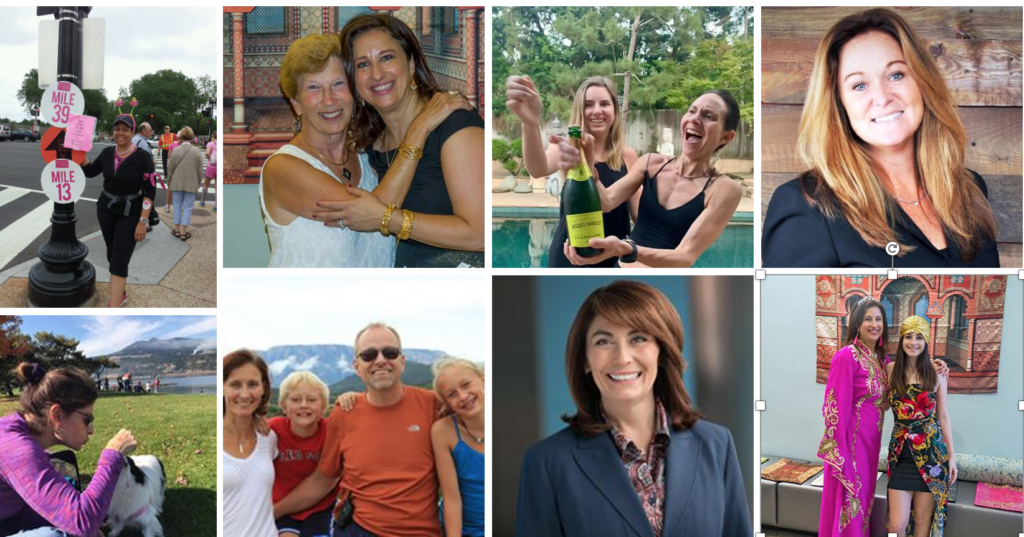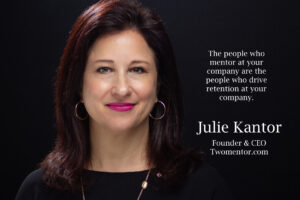Project BFF sat down with leader and social impact entrepreneur Julie Kantor to talk about the friendships in her life.
Project BFF: What kind of impact you see that social media having on friend relationships, yours or others?
Julie: I remember a Facebook post—it was a woman at her husband’s funeral, and she was looking around; you could see there were seats for about 150 people, and maybe only four filled. And she said, “I don’t understand why no one came today, it says he has 2,000 Facebook friends.”
Social media is a decent way just to know what’s going on in your friends’ lives, knowing what’s going on with their kids, if they’re on a vacation, their sunsets, what they eat, what they care about in terms of advocacy, what they’re up to professionally.
At one point I got off Facebook for a year. I was going through a lot of things that were difficult in my life, and I just thought it presented a false reality, relationships somewhat superficial. I would say most people never knew that I was off it. We just got used to liking and acknowledging each other, but not picking up the phone as much or taking a walk or a plane to invest in these relationships.
On the flip side, when I got back on Facebook, I remember going to a conference and bumping into a lot of people and it was bizarre how much they knew about my life, my daughter. Congratulations on this, and this. There was something also endearing about that, that people do pay attention to each other.
If there is a hierarchy on how to connect with friends, and I would say social media is significantly lower than anything you do one-on-one. I think face-to-face is best. Number two is video teleconference to see people, to feel like you’re sitting across from the person. Number three is phone and probably number four is sending a handwritten card. And then text. After all that comes social media platforms. Professionally however, social media can be a good pre-curser to a phone call or video conference.
Project BFF: How do your friends feel about your mission, your career, and how they support you in your work?
Julie: I have very good friends from different places—some work friends from my professional life, newer friends, and then childhood friends that go back to 9th and 10th grade in particular.
With my oldest friends, we don’t talk a lot about what I do professionally. We mainly talked about life. We talk about issues with our kids, we talk about relationships and marriage, 80’s music, Netflix, we talk about what’s going on in the world. For some reason, I don’t bring my work life to my oldest friendships a lot. Perhaps spending time with my besties is also a way for me to decompress from my work life and we look for commonalities.
We do talk about mentoring or if there’s an issue with one of them in their culture, in their work place. We might discuss it then. Lately we have had a lot of conversations on social action and race relationships- speaking from the heart.
I don’t think I have one specific best friend and if I do, its my husband, I am very fortunate to walk this life with him. I have several good friends. I’ve always been extremely mission-driven and extremely passionate about causes, and in my early career put my work at the forefront in things. I was probably one of the more intense working people and I felt at times that my friends might resent it a little bit…that I wasn’t as available. So, I did what my dad did, which is I tried not to bring work home with me.
That was a decision that I made because I wanted to be my personal self with my friendships. I ran a charity for 20 years, and if I wanted to talk a lot about work I talked to a life coach or a leadership coach, my family who ask all the time. Unless a friend asks, I don’t bring up my work a ton.
But I do write a lot of blogs for Huffington Post and more and share them on LinkedIn. And I have one friend in particular, she’s a dear friend, and we’re kind of made out of the same stuff, so when we talk, we get really intensely focused on work. We look at each other as really good friends, but we also are peer mentors. It just works for us to have a hybrid relationship. I love and value her and I value those conversations.

Sonia, Julie & Erin (20-something) 
Karen & Julie (16)
Project BFF: What advice would you give your 12-year old self about making friends throughout your life?
Julie: Well, I think it would be the same advice I give to my daughter, who’s now 17. My brother said to me once that in the word best does not exist in Swahili. He was living in Africa, in the Peace Corps. So I always recommend having lots of good friends, or a couple of really, really good friends.
Don’t put so many expectations on one person to be that perfect best friend. I’ve had relationships destroyed by having too many expectations. Having several good friends takes the pressure off, so you could really enjoy each other.
I tell my daughter the fact that a friend wants to go hang out with her boyfriend or someone else and you feel like she’s blowing you off, well then you have three other friends you can get together with. Then there isn’t jealousy, but room to be happy. You find in your friend someone who is there in the good times or bad times. That is, I think, the test of a true friendship.
Another really important litmus test is: Can you guys have an argument? And how do you get through it? One thing that just blows me away about some female friendship is how difficult it is to work through things. If you have a boyfriend, you get in a fight. You can work it out. If you get in a fight with a family member, okay, you can work it out and make up.
I’ve had female friendships where fight number one was a body blow to the friendship. You’ve got to be able to have an honesty in your friendship that you can communicate in a way that makes your connection stronger. So I’d recommend discussing it with friends, like, how would we deal it if we were at odds?
I had a friend who took an action that was against my value system. She knew this and still shared it with me. It was such a great experience because she wanted me to be authentic, she gave me permission to just be me, my authentic self. She knew me and wanted my feedback. It was a totally mature and very different experience, and we were able to talk through it and the friendship didn’t suffer it actually strengthened us.

Project BFF: Any other thoughts to share about friendships?
Julie: I really like this quote “Don’t walk ahead of me, I may not follow. Don’t walk behind me, I may not lead. Just walk besides me and be my friend.” It’s important to make time to see each other. At times you can get so disappointed and believe your friends don’t want even be your friend anymore, because you might not hear from them for months. They might just be the type that doesn’t pick up the phone and call a lot. It’s easy to start thinking, Okay, they just don’t care. And I was proven wrong on this. The friendship was still there. We have these old friendships and they’re precious, go see them. Take action. Avoid the misunderstandings. Ask. Don’t give up.
You’re a mother, you’re a daughter, you might be a sister, you have in-laws and their families, you might have a vibrant work life, be the key breadwinner and you have your relationship with your partner. All these responsibilities can cause female friendships decline, go on the back burner. Especially when you don’t live near each other and have issues with kids and/or at home.
You’ve got to find a way, make an effort to connect, whether it’s every month, every two months, once a week. Whatever it is, and just make sure that you don’t put your friendships so far into the back corners that they get damaged- you will need them much more in your 50’s and beyond – trust me. And also lighten up on each other—because that is a whole heck a lot of hats that we’re all trying to wear.
I want to end this by thanking dearest friends Sunny, Jenn, Erin, Karen, Heather, Sonja, Jowita, Debbie, Zena, Justine, Mom, Carole, Maui Mom, Tony and of course, Marc. I love you all dearly and value your friendships more than words can express!
Note: Conversation was lightly edited for clarity.
About Julie
Julie Kantor is a leader & social impact entrepreneur. She is CEO of Twomentor–Managed Mentoring Solutions focusing on elevating and retaining a skilled diverse workforce. She is also the author of I Said Yes: Youth Entrepreneurship in America’s Schools (Gazelles Publishing) and numerous other publications including Million Women Mentors & BP’s 20 Hour Mentor Action Guide, The Mentor Road Trip™ Training Guide, Youth Entrepreneurship in America (The Aspen Institute). Julie is also a contributing author to Women in STEM: Realizing the Potential with Tata Consulting Services, has written for The Diplomatic Courier, and has been a business and tech blogger for Huffington Post since 2012.

